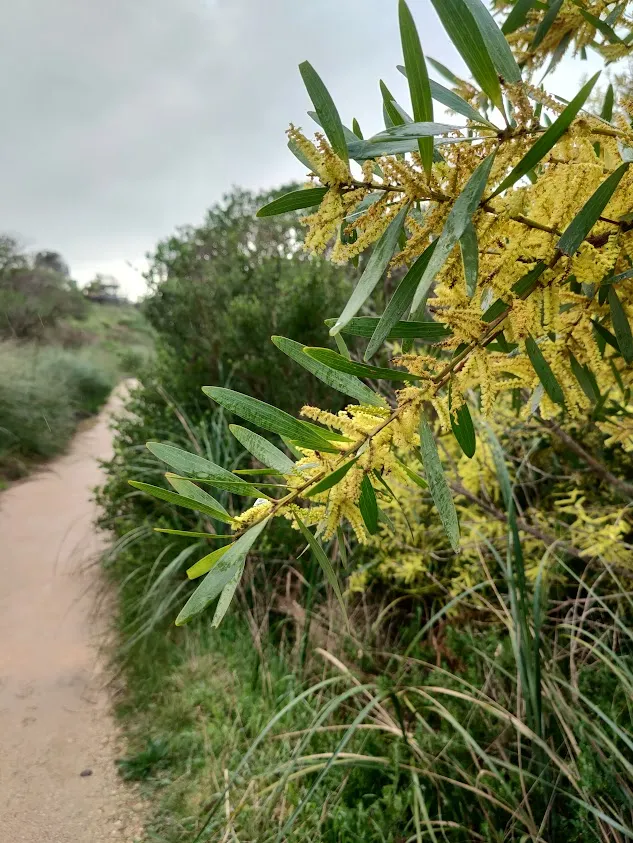Who wakes up at 4 am needing their inhaler? Who uses their puffer far more than they probably should - ugh, those ventolin jitters? Who's on steroid meds to calm their asthma the fuck down?
Yep, hands up to all of them. I even used to put a puffer down the chest of my wetsuit just in case.
But for the first time in my life, I feel like my asthma is more in control than it's ever, every been. To me, that feels like an absolute miracle of untold proportions. The only time I've felt a little painfully short of breath was sitting by an open fire on the weekend, but that's a reasonable trigger.
Cue the trick. First of all, let's look at something that we all need to consider, whether we're asthmatic or not - do we breath through the mouth, or the nose?

Why You Need to Make Sure You're a Nose Breather
There's a ton of research out there that affirms why you really need to sort out your mouth breathing - I wrote a post recently on the book Breath, and highly recommend it. I definitely am mostly a nose breather - being a yogi, I was pretty attentive to how I breathed, and thought I was primarily a nose breather. More on this in a second.
First, let's look at why nose breathing is important for asthmatics (and the rest of us)
Air not properly filtered: When you nose breath, your breath is warmed, filtered and humidified before it hits your lungs. Nose hairs and mucus trap pollen, dust and allergens - it's a perfect natural filtration system. It can even help with immunity against colds. Think about it. Why would we have a nose and a mouth if we aren't using the nose? That's just mental.
Drier air: If you mouth breath, the air is drier - this can irritate the bronchial tubes. Cue coughing, shortness of breath, and wheezing. Sad face emoji here.
Decreased nitric oxide: This helps widen the airways and improves oxygen exchange - and yep, it's not as great an exchange if you mouth breath, and thus airway dilation is limited.
Hyperventilation: If you're asthmatic you're probably aware you are more likely to shallow breath, or hyperventilate - which tightens the airways and reduces air flow.
Exacerbation of asthma symptoms at night: Here's the kicker. Even if you think you've got the nose breathing under control during the day, how do you know if you've got it under control when you're asleep? If you wake up a lot you might be thinking you've got sleep apnea, and if you wake up snuffly it's likely nasal congestion, right? This is why you wake up at 4 am. All that dry, unfiltered air enters the lungs - and you're grasping for an inhaler.

The Trick
A bandaid. Seriously. Putting a bandaid vertically so it sticks below your nose and onto your chin is the answer.
Since I've been doing this, I don't wake up with a dry mouth, or overly tired, or short of breath - there's no lung tightness at all.
This convinces me I must have been mouthbreathing at night.
Some poeple - like my husband, who has sleep apnea, use stronger medical tape, especially with beards. Either way, you want to make it sticky enough to stay on all night, but it's still possibly to peel off when you need a glass of water. I like the vertical method because if you need to cough you can do so through the sides of your mouth.
Honestly, if you wake up wheezy, or if you have sleep apnea or even wake up tired with a dry mouth, I give you a challenge to sleep with a taped mouth. It's honestly changed my life.
A Few Other Things That Have Helped
I'm only using my symbicort once every 4 days, one puff of 400 mg. In my experience, the preventative is better than the 'cure' of using a ventolin, which makes me jittery. But oral steroids aren't the best long term, so next time I see my doctor I'm going to chat about the alternative.
Let me be clear though - last year I was taking two puffs in the morning and two at night. That's insane. I felt it was the only way to get through life and be able to breath. Turns out there was another way.
Here's two things I did on top of the bandaid/tape method that I believe contributed to my asthma being so much better it's almost not an issue anymore.
Let me make it clear - this took a good two months of consistent work, and I'm still doing it. At first it was every time I thought about it, and now not so much, but still consistently - it's I don't think about it as much, and it's not as hard. Because at fist, it feels like you're constantly struggling with your breath. You have to retrain yourself both physically and psychologically. But this works.
a) Box breathing and other pranyama: Breath in for 4, in for 4, out for 4, hold for 4, in for 4. And so on, for about five minutes. If you're new to it, look it up on Youtube or find an app so you can get the rhythm right. After a while, you can increase it to 5 or even 6 or longer. There's a few other breathing techniques you can use as well - I like breathing breath holds and long slow exhales too.
How do they work? They stimulate the parasympathetic nervous system which helps you relax, and can lead to the bronchial passages dilating and thus makes breathing easier. Try this next time you automatically reach for your inhaler. I'm not saying don't use the inhaler, but I've found that this has helped enough over time that I'm not longer reaching for it - I'm box breathing instead.
It also helps reduce hyperventilation and airway hyperreactivity, which leads to a redcue in co2 levels in the blood, which in turn cause bronchial constriction. By slowing down the breath, you end up with more balanced co2 in teh blood, which helps prevent asthma flare ups.
You bet I'm box breathing as I write this.
Breathing like this also helps stress, which is a known trigger for asthama. By reducing stress and anxiety, you're reducing the production of inflammatory molecules like cortisol. It also helps engage the diaphram, strengthening the muscles over time. It encourages slow and controlled nasal breathing (see above - remember how it filters the air and humidifies it?).
b) Nose breathing even when I feel I need the air. This one's been a radical exercise for me. Most asthmatics will know what being 'puffed' is like and how even a short brisk walk will make them a little breathless. When we are breathless, we tend to take gulps of air through the mouth, because we think we need more oxygen. Even non asthmatic runners and sports people do this until they're trained otherwise. But what we need to do is increase our tolerance to co2. When we've got better co2 tolerance, there's better exchange with oxygen. A no brainer when we think about it!
So by doing box breathing, I was already increasing my co2 tolerance. What I had to do is train myself to not gasp for air through my mouth when I was exercising. It's deeply uncomfortable because we believe we need air however we can get it. But after a minute or two, you find your lungs settle down and you're not even thinking about it - you're nose breathing and you're just fine.
This was the biggest headfuck ever - but it works.
c) Delaying reaching for the inhaler. Okay there's a caveat here - I don't want to advise you to do this, because you could die of an asthma attack. The trick for me doing this is knowing I had the inhaler there and I wasn't too far gone that it would be a life and death situation. The thing is, I was so well trained to have my ventolin when I was short of breath I didn't think about how most people can be short of breath and recover.
Now I know better.
Now I box breath, calm my system down - and voila, it passes. Sometimes that take ten minutes. Sometimes that takes half an hour. But it does pass. I only find that sometimes, if it's an environmental trigger like smoke, I'll need the inhaler anyway. Most of the time that's every four days - sometimes more.
This is life changing!!!!
Honestly, I can't explain how much this has changed my life. I'm not spending as much on asthma meds, I'm exercising without my inhale, and I generally feel calmer and less inflamed. To think this all started by paying real close attention to nose breathing and using a band aid at night!
I genuinely can't believe how much things have changed - and I was pretty defined by my asthma. These days I can even do a steady walk uphill and not need my puffer at all.
Have you tried any of these methods? Are you a nose breather or a mouth breather? How do you manage your breathing? Have you g
With Love,

Are you on HIVE yet? Earn for writing! Referral link for FREE account here